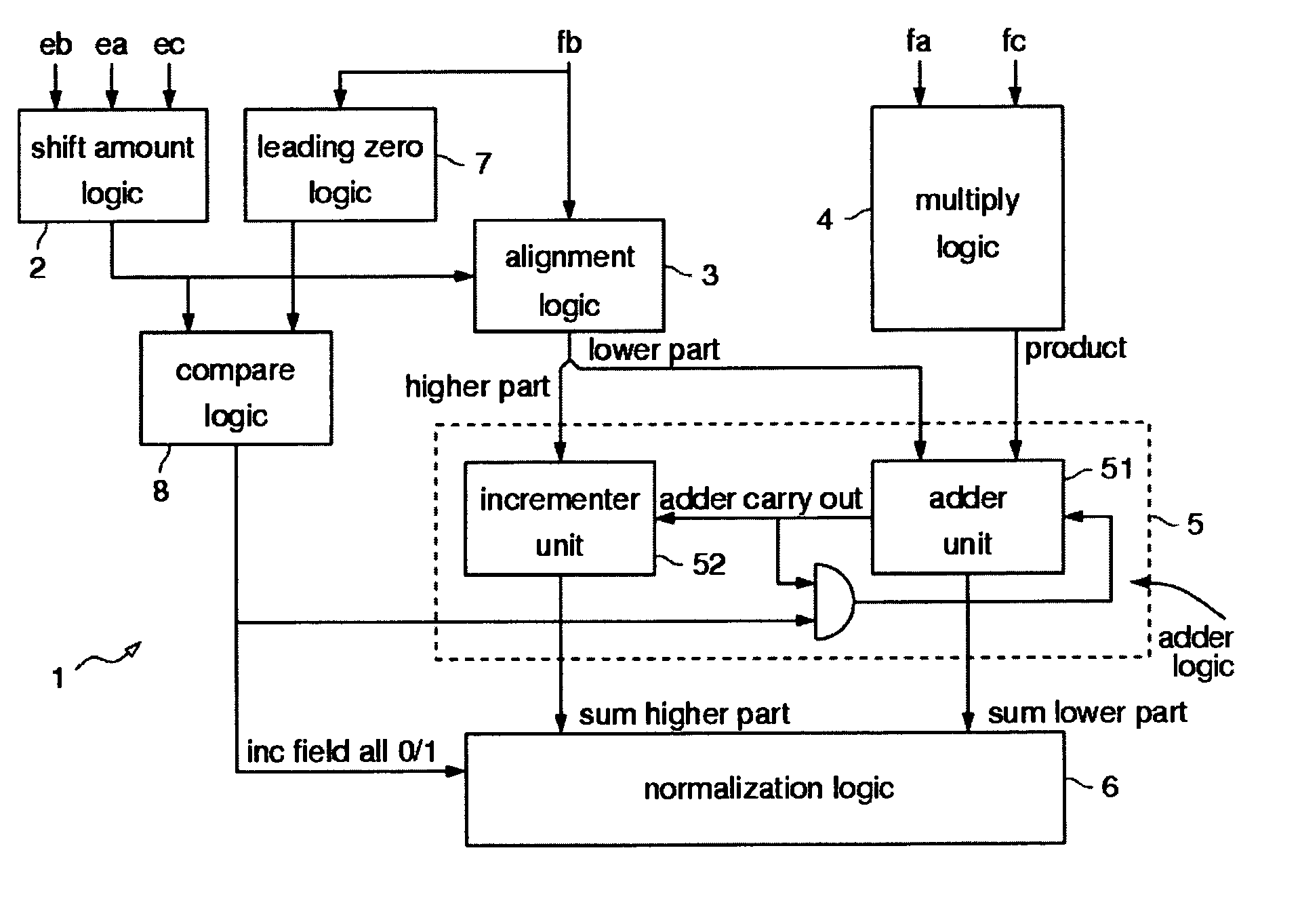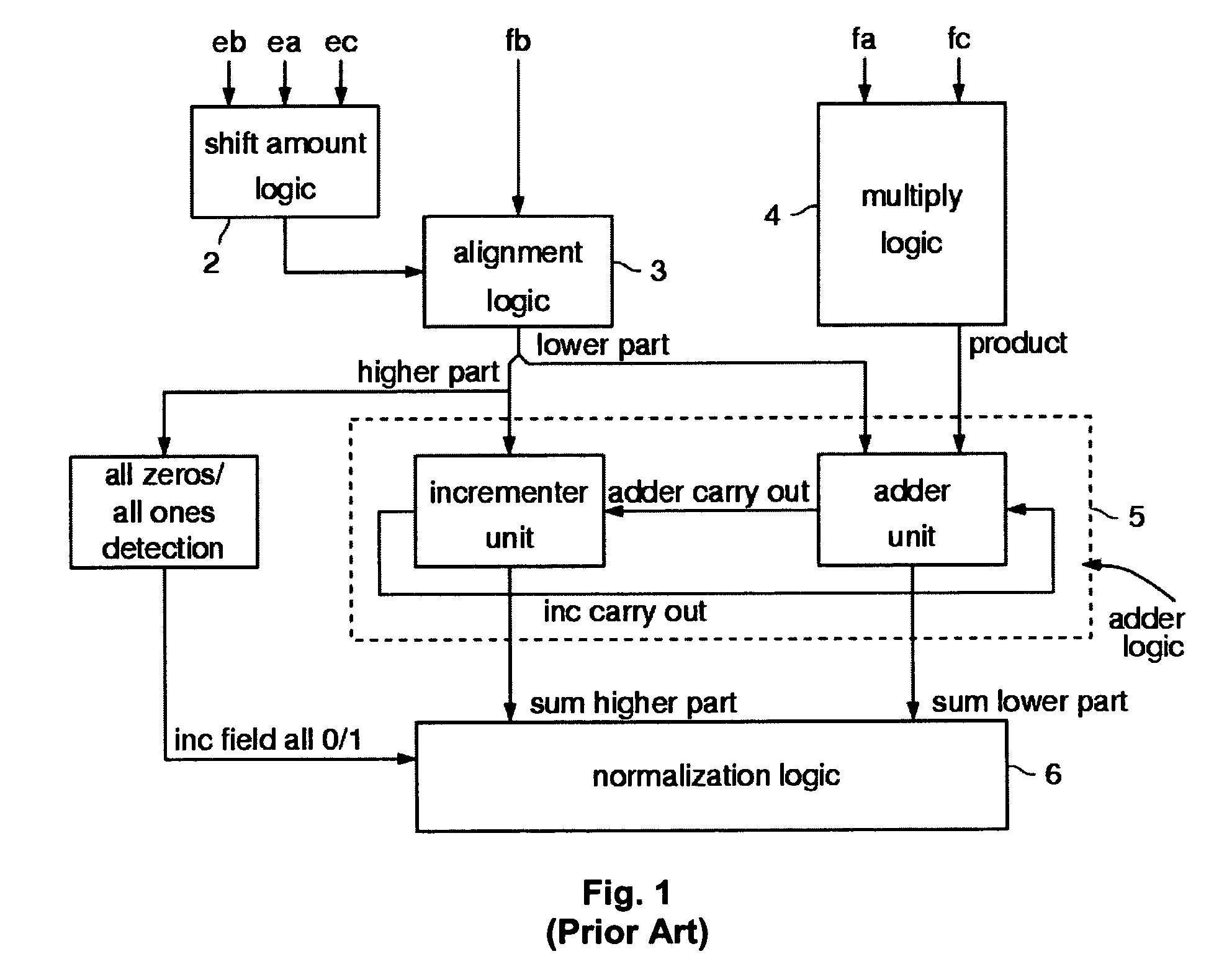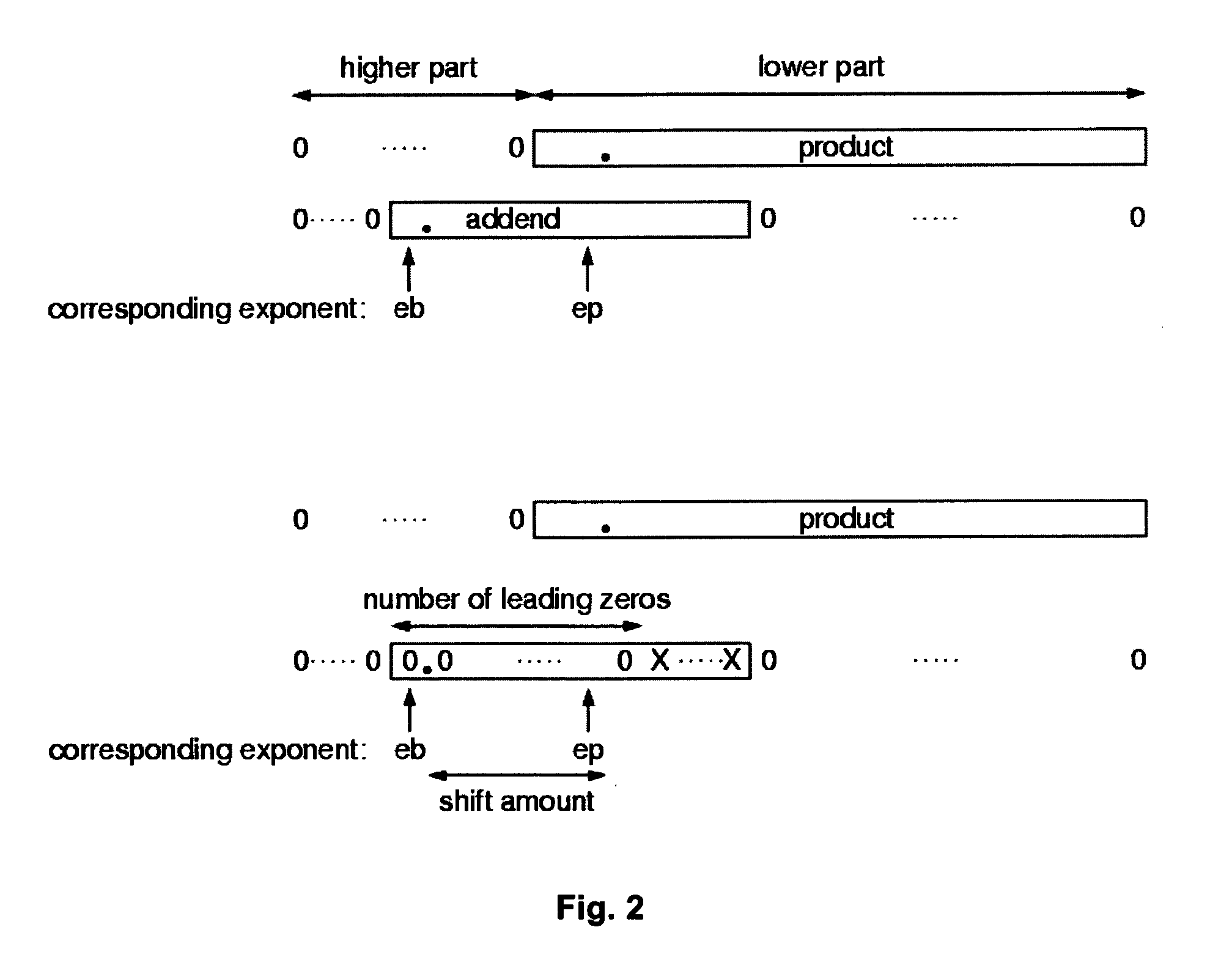Floating point unit with fused multiply add and method for calculating a result with a floating point unit
a technology of multiply add and floating point unit, applied in the field of floating point unit with fused multiply add, can solve the problem that parts are often timing critical, and achieve the effect of reducing the delay of the first stag
- Summary
- Abstract
- Description
- Claims
- Application Information
AI Technical Summary
Benefits of technology
Problems solved by technology
Method used
Image
Examples
Embodiment Construction
[0032] Equal reference signs in the description designate the same or equivalent elements.
[0033]FIG. 1 depicts a scheme of a state-of-the-art Floating Point Unit that support fused multiply add instructions compute A*C+B for three floating point numbers A, B, and C.
[0034] A floating point number X consists of a sign sx, an exponent ex and a fraction fx (0=e_min, the minimum exponent, and 1<=fx<2; if ex=e_min and 0
[0035] For the sake of the description we assume that the exponent eb of the addend B is larger than the exponent ep=ea+ec of the product A*C. In order to add A*C and B the fraction of the addend B must be aligned to the fraction of the product A*C such that the bits of the fractions are of the same order of magnitude. E.g., if eb=ea+ec+5, the addend fraction fb must be aligned such that the bit 4 of fb aligns to the most significant bit (bit 0) of the product fraction fp=fa*fc (Note that 0<=fp<4, thus fp has two digits before the binary ...
PUM
 Login to View More
Login to View More Abstract
Description
Claims
Application Information
 Login to View More
Login to View More - R&D
- Intellectual Property
- Life Sciences
- Materials
- Tech Scout
- Unparalleled Data Quality
- Higher Quality Content
- 60% Fewer Hallucinations
Browse by: Latest US Patents, China's latest patents, Technical Efficacy Thesaurus, Application Domain, Technology Topic, Popular Technical Reports.
© 2025 PatSnap. All rights reserved.Legal|Privacy policy|Modern Slavery Act Transparency Statement|Sitemap|About US| Contact US: help@patsnap.com



